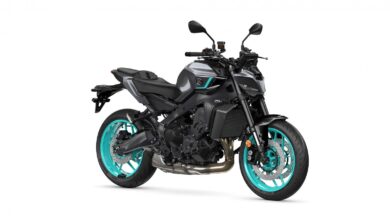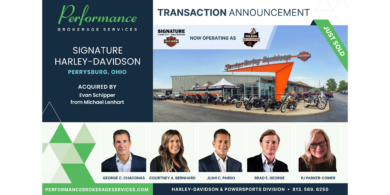Sizing up your dealership’s value should start with one key question – July 24, 2006
As I travel around the country, perhaps the most asked question I receive is “what is my dealership worth?” There is no quick answer or formula that can be broadly applied. I do, however, have a standard reply: “What else are you going to do?”
Before looking for what it is worth to someone else, consider what it is worth to you.
In spite of all the challenges and daily travails, the business provides, for those up to the challenge, a great living and a lifestyle most people envy. Before considering earnings or a price based on a multiple of those earnings, think about everything you get out of the business. Take a look at the calendar as well as the balance sheet. Where have you and your wife been in the last year? What have you done and what toys were you able to play with? Think about all the business provides for you and your family.
What are the reasons driving you to sell? If you are tired of the swirl and constant struggle to stay in control, consider what you will have in your “next life.” Will you be more in control of your next endeavor? Will it provide the lifestyle you have now? If there is a business out there that is truly “turn key,” and does not confront you with all the challenges you face everyday, it will cost you more than you will ever sell a motorcycle dealership for.
If you are at the point where it is time to retire and cash in, or if there is something else you really would like to do, what your dealership is worth is a serious consideration. So let us consider what drives the price, the easy parts first.
The value of the real estate is easy to establish, with professional appraisals readily available. I always try to remove the real estate from negotiations for this reason. The market price is the market price whether you sell or lease the property.
FF&E (the fittings, fixtures and equipment) are typically priced at book, market or replacement cost. There is room for negotiation here. As a seller, you would like to obtain replacement price and the buyer wants to buy at the net depreciated value. A price somewhere in between is fair.
The inventory valuation is a little more complex. Here are the most common formulas:
Parts and accessories:
You have appraised the property and counted the inventory, now what is the business worth? Call it goodwill, blue sky or enterprise value, the number, like most things in life, is what you can get. The blue sky number is all over the board.
For a Harley dealership or a metric dealership in a state with good franchise laws, I always advise buyers to target three times forward earnings.
This assumes the buyer has identified areas of needed improvement and has the ability to implement better practices, or cash in on peripheral opportunities being missed by the seller. This is a win-win scenario for the buyer and the seller. We were recently involved in the transfer of an Alabama dealership where the seller was paid nine times earnings in good will, and the seller recouped his investment in less than two years.
If you have a well-run dealership that cashes in on all of the peripheral opportunities — used bikes, F&I, maintenance agreements, etc. — there is not the head room and you will not receive the high multiple. So, back to my first question, do you really want to sell?
If you are in a state that does not offer good franchise protection to the dealer by providing a defined area or territorial exclusivity, the value of the business is greatly diminished. Does your state law guarantee you the right to sell? Does the law limit OEM challenges to just cause? Without some sort of guarantee of supply and the exclusive rights to sell the products you offer, the business has no value, other than inventory. Hopefully you are in a state with a franchise law that protects your investment.
When it does come time to sell, you need someone who can credibly project the forward earnings and potential of the dealership. You need more than just your tax returns to go on. The tax returns will never reflect the true value of the business.
Consider all of the above if you really want to sell. Or if you are just curious about what your dealership will bring, give me a call or e-mail me at edlemco@aol.com.
Cheers, Ed. psb
Ed Lemco has been involved with the powersports industry for more than 30 years. Lemco, the former owner of Lemco Management Group, is currently a member of the National Council of Motorcycle Dealer Associations. He can be reached at edlemco@aol.com.




